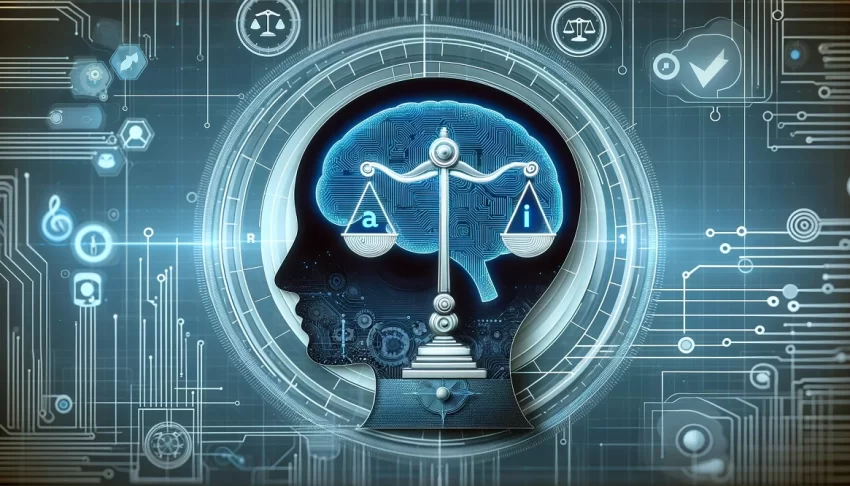Introduction
The rapid evolution of artificial intelligence (AI) is transforming industries, from healthcare and finance to education and defense. While AI’s capabilities continue to expand, concerns over ethics, regulation, and potential risks have sparked debates among policymakers, tech leaders, and global institutions. As AI becomes more integrated into daily life, the question remains: how can governments regulate AI while fostering innovation?
AI’s Growing Influence Across Industries
AI has revolutionized numerous fields, offering advancements that were once thought impossible:
- Healthcare: AI-powered diagnostics and robotic surgeries have improved medical efficiency and accuracy, enabling faster disease detection and treatment recommendations.
- Finance: AI-driven algorithms now manage investments, detect fraud, and provide automated financial planning services.
- Education: AI-based tools personalize learning experiences, offering tailored courses and adaptive tutoring systems.
- Autonomous Vehicles: Self-driving technology continues to advance, with companies like Tesla and Waymo developing AI-driven cars aimed at reducing accidents and traffic congestion.
- Creative Industries: AI-generated art, music, and writing tools are reshaping how content is produced, sparking debates over copyright and originality.
Regulation vs. Innovation: A Global Debate
As AI becomes more powerful, governments and regulatory bodies face the challenge of balancing innovation with ethical concerns and security risks. Some of the main issues include:
1. Data Privacy and AI Ethics
AI systems require vast amounts of data, raising concerns about privacy, surveillance, and data security. Many critics argue that companies should be transparent about how they collect and use user data. The European Union’s AI Act is a major regulatory effort aimed at ensuring AI applications follow strict ethical guidelines.
2. Job Displacement and Economic Impact
Automation powered by AI has led to fears of job losses, particularly in sectors reliant on routine tasks. While AI creates new opportunities, many workers risk being displaced if they lack the skills to transition into AI-driven roles. Governments worldwide are discussing policies to retrain workers and ensure a balanced job market.
3. Deepfakes and Misinformation
AI-generated deepfakes and misinformation pose a threat to political stability and public trust. With AI’s ability to manipulate images, videos, and voices, experts warn about the dangers of election interference, fake news, and identity fraud. Some governments are exploring legislation to criminalize malicious AI-generated content.
4. AI in Military and Security Applications
AI-powered weapons and surveillance systems have raised concerns about autonomous warfare and human rights violations. The United Nations has called for regulations on AI in military applications, but global powers remain divided on the issue.
Different Approaches to AI Regulation
The European Union: Leading in AI Governance
The EU has introduced the AI Act, which categorizes AI systems based on risk levels and enforces strict rules for high-risk applications, such as biometric surveillance and predictive policing.
United States: A Free-Market Approach with Selective Oversight
The U.S. has taken a pro-business approach, allowing tech companies to innovate while considering future regulations. President Joe Biden has signed executive orders addressing AI safety, but comprehensive AI laws remain under discussion.
China: AI as a Tool for State Control
China is heavily investing in AI but enforces strict regulations on AI-generated content and facial recognition technologies. The government also uses AI for mass surveillance and social credit systems, raising concerns about human rights violations.
The Future of AI Regulation
As AI continues to evolve, global cooperation will be crucial in establishing fair regulations while avoiding innovation roadblocks. Key areas for future policy discussions include:
- International AI safety standards to prevent misuse in warfare and cybercrime.
- Stronger transparency laws to hold AI developers accountable for biased or harmful algorithms.
- Ethical AI frameworks that prioritize human rights and fairness in AI applications.
Conclusion
The AI revolution presents both immense opportunities and serious risks. While technological advancements promise a future of efficiency, automation, and innovation, the lack of proper regulation could lead to unintended social, economic, and ethical consequences. The challenge for world leaders is clear: how to regulate AI responsibly without stifling progress? The decisions made today will shape the role AI plays in society for decades to come.




